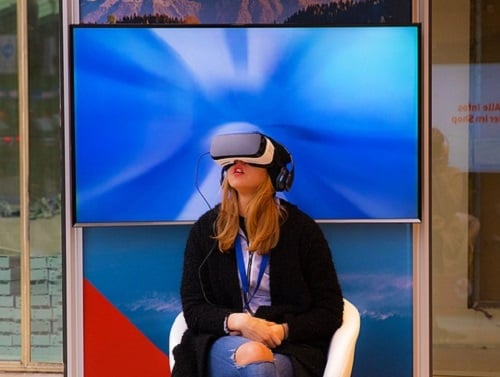In engineering, the Boil Out procedure involves decontaminating bitumen sprayers and tankers once water has become present. The mixing of water and bitumen can create a “boil over” effect, where bitumen can be sprayed with considerable force over a wide area.
Needless to say, it puts people’s safety at risk.
But now civil engineering and resource company Fulton Hogan is using virtual reality – the VR Boil Out app -- in training its workers to deal with such a scenario without compromising their safety.
Trainees only have to put on VR goggles and headphones for the “highly immersive simulation,” says Fulton Hogan Innovation Manager Chloe Smith.
“You actually feel like you are standing on top of the tank, looking down from a height. Along with this the sound effects are so realistic you really do feel like you are physically present in the scenario.”
She added that the VR training, aside from eliminating risks, has also improved engagement during training.
Team members are then able to retain crucial knowledge.
- Risk factors are outlined clearly at the start of the training. When mistakes are made, trainees are virtually transported to a room where a screen outlines the errors they made and the steps they should have taken.
- They are able to repeat the task, with knowledge of their previous mistakes, and improve their performance.
- Trainees are tracked throughout the process, recording all the decisions that were made, and how long they spent completing each task. This data is added to their training records for future reference.
“Our experience confirms what we have already learnt from our significant investment in virtual driver training – that our team members relate to the gamification of the technical learning,” said Smith.
“They really get into it with an enthusiasm that is sometimes not there with traditional classroom training.”
In 2015 the company, which has more than 3,000 vehicles on the road, purchased a pair of state-of-the-art simulators capable of re-creating a range of New Zealand driving conditions including night driving, sudden road obstructions and conditions including wind, rain, fog and snow.
The simulators are now transported around the country. Its 3,800 New Zealand-based employees, as well as school students and community partners, can broaden their on-road skills.
The company is now exploring the use of VR training in other similar operational areas.
The training app was selected as a finalist in the Innovation in the Education, Training & Development category at the 2017 New Zealand Innovation Awards.
Related stories:
Retail giant taps virtual reality to train employees
How simulations bring L&D to life

